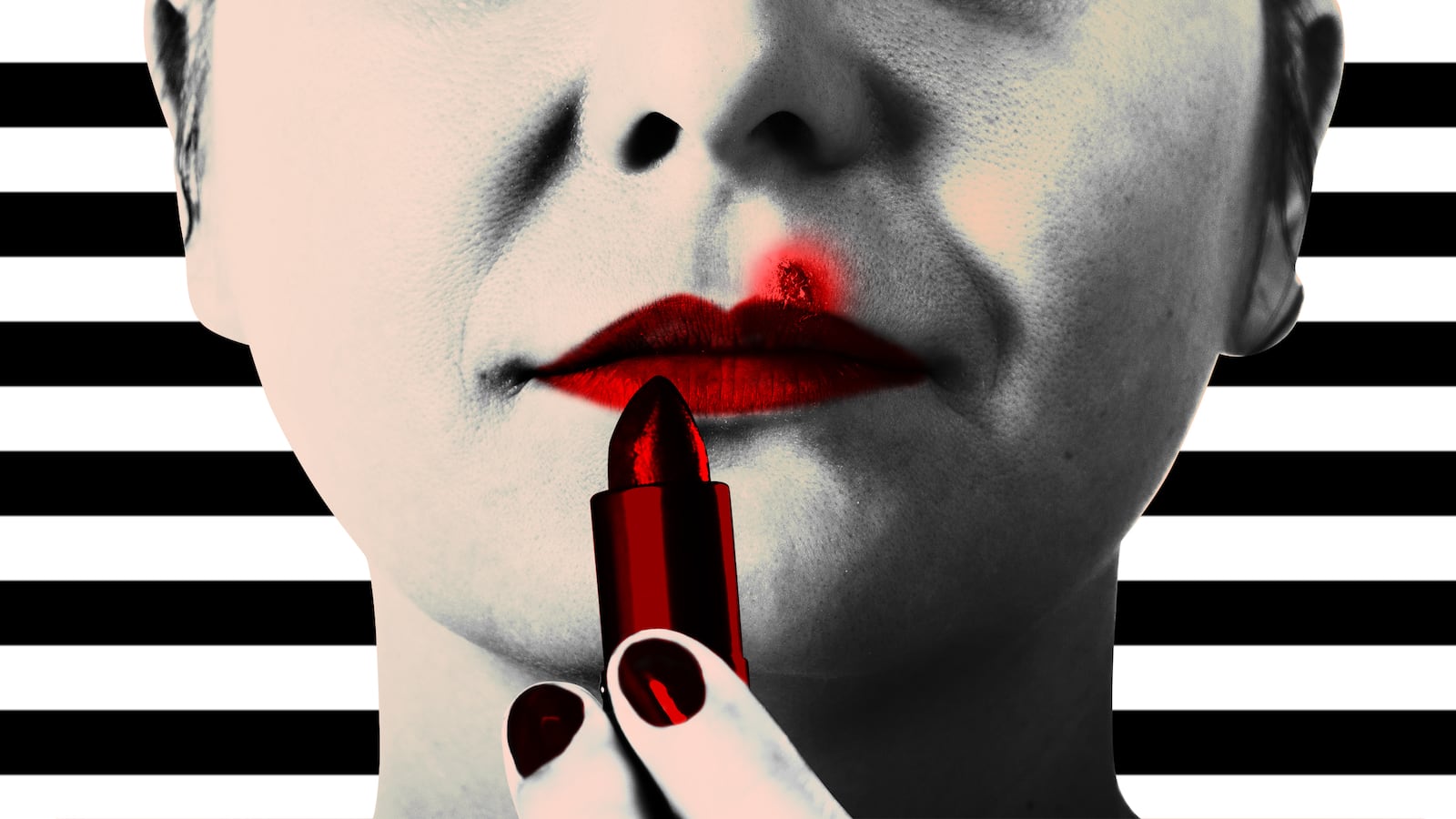Earlier this week, TMZ reported that a woman had sued a Sephora store in Hollywood for contracting herpes on her lip after swiping on a “common use” tubes on display in October 2015. TMZ’s report said that the woman was suing because Sephora did not warn “customers of the risk of getting herpes or other diseases from trying on the lipstick samples. She said if she would have known ... she would’ve avoided them like the plague.”
The woman has not publicly released details, but Sephora gave The Daily Beast a statement: “While it is our policy not to comment on litigation, the health and safety of our clients is our foremost priority. We take product hygiene very seriously and we are dedicated to following best practices in our stores.”
But one expert on herpes isn’t so sure. Terri Warren, the founder of Westover Heights Clinic in Portland, Oregon, and a noted clinician on herpes says that the chances the woman got infected by a lipstick sample are very slim.
“I think while it’s remotely possible that this could have happened, it’s extremely unlikely,” Warren, an adviser with the American Sexual Health Association, said.
First off, there’s the fact that she got a cold sore. While that might be the trademark, telltale sign of herpes, Warren noted that it doesn’t prove the lipstick she tried on at Sephora was directly responsible for her herpes. “Just because she got her first cold sore at that time doesn’t mean it’s her first infection,” Warren said. According to TMZ, the woman “was diagnosed by medical pros and she claims she never had herpes or cold sores before this Sephora visit.”
But a first cold sore isn’t a sign that the woman wasn’t carrying herpes for years, even decades, and did not know about it until something triggered the disease to show. That’s because she can have Type 1 herpes, which is asymptomatic. That means the initial signs of the virus taking residence in your body—swollen lymph nodes, feverishness, and body aches—can be latent for a while before a person realizes they’ve got herpes.
There’s also the fact that she might have had symptoms in the past and simply not noticed them. The herpes virus lives in and travels through nerves that branch from the base of the head into the nose, lips, and out to the chin. “So it’s very possible that she had a sore in her nose in the past and just did not notice it,” Warren said.
Warren also noted that the biochemistry of lip skin, which is thicker and less mucus-y than the membranes in the mouth, make it difficult for a virus to originate from there. “Even if there was chapping or a break in the lip, it’s difficult,” she said. “The mouth isn’t as thick, but people don’t put lipstick in their mouth.”
The last, perhaps biggest problem here? The fact that it takes about a week to confirm that herpes is in a person’s system. According to Warren, it’s a two-pronged process. When the herpes virus enters a person’s body, an antibody is made. If a person thinks they have herpes, they get an antibody test. If it’s positive, that means they’ve previously had herpes in their system—and therefore, that it would not be from, say, trying on lipstick at a makeup counter. If it were negative, a patient would have to wait about a week, continue to have sores, and take another antibody test that would turn up positive. That change—from negative to positive—over the course of several days is crucial in laying blame on herpes on a specific product or source.
And we can’t rule out the fact that the woman filing the suit somehow got herpes from the old-fashioned way, like kissing someone and exchanging saliva.
So how could lipstick give a woman herpes? Warren illustrated: “A person would have to have an active cold sore and come along and use lipstick. Then you would have to come with badly chapped lips and use that same lipstick within two minutes”—the virus gets weaker and disappears with exposure—“and you’d have to get quite a bit.” That’s because your body is trained to fight off small doses of the herpes virus; it would take a heavier dose of herpes to travel from the lipstick to chapped lips and into the system for a person to contract the virus.
“There’s a whole lot of obstacles for a case like this in medical plausibility,” Warren said. “It’s not impossible, but it’s extremely unlikely.” To be clear: Warren definitely doesn’t recommend trying on lipstick without an antiseptic or avoiding the mouth area in general if you’re using a publicly shared lipstick for trial. But can you get herpes from makeup counters? The chances are very, very small.






